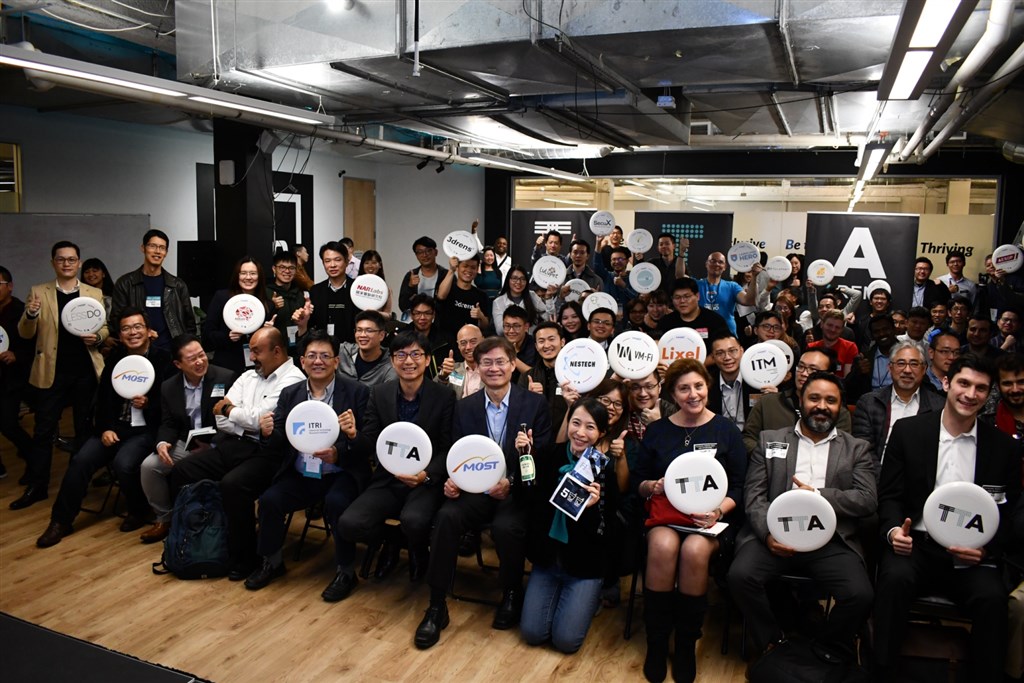Digging for data Any AI system needs to learn from data – the more the better. Taiwan has a trove of data to feed on thanks to its National Health Insurance (NHI)system, which was launched in 1995 and covers more than 99% of the population. In recent years, the government has allowed access to this extensive data for research and development. One startup to take advantage of this opportunity is AESOP Technology, which has offices in Taipei, Berkeley, California, and Cambridge, Massachusetts. AESOP is trying to reduce a major risk to patients’ health globally: medical errors, specifically prescription errors. In Taiwan, they analyzed NHI data and found at least 3 million incorrect prescriptions each year, from incorrectly filled out forms to prescribing the wrong drugs or dosages. “Everyone thinks hospitals are high-tech, but in hospitals, the staff records patients’ status on white boards,” said Jim Long, CEO of AESOP. “Doctors spell drug names wrong – even common drug names that sound like and look like other drug names.” Traditionally, the industry has used rule-based reminders, which look at one or two variables – such as whether two specific drugs are prescribed together. A lot of noisy alerts are generated that physicians often ignore or turn off. AESOP is unique in that it considers many more variables – from four to more than 20 – when deciding whether to send an alert. These include a patient’s age, gender, the hospital department involved, and the diagnosis. Its system uses machine-learning to flag outliers, signaling a potential mistake. Long and his business partner founded AESOP – a spin-off startup from Taipei Medical University – last year but had first started trying to address the problem of prescription errors 20 years ago. Two developments over the past five years have been instrumental in making this technology possible, says Long. The first is greater computational power. Given that there are 60,000 possible clinical diagnoses adjusted for patients’ gender, ages, medication, and so on, just five years ago Long and his team estimated that “to finish a round of machine learning would take 150 years.” The second key change was the opening of Taiwan’s NHI Administration’s database to biotechnology and healthcare firms through academic research cooperation. Since 2016, such access to anonymized healthcare data for Taiwan’s population going back to 1995 has been available upon application. This is much more than the maximum 50 million prescriptions AESOP is allowed to access and purchase from public sources in the U.S.,Long said. In a bid to protect privacy, researchers and companies are not allowed to take any notes inside the data center in Nangang. They can only use the center’s computers and then provide the result of their searches to the staff, who then check it and send it to them. AESOP’s MedGuard system has been in use in three hospitals in Taiwan since 2017. This year, the company has signed up more hospitals in Taiwan, and physicians at Harvard Medical School’s Brigham and Women’s Hospital are also giving the system a trial. “Our target will still be the U.S.,” says Long. The U.S. is a bigger market than Taiwan and uses the same drug coding system and language when prescribing, he says. One prescription error it caught in Taiwan involved a 9-year-old girl with lower back pain. The physician had meant to prescribe Solaxin, a muscle relaxant. Instead, he chose Solian, an antipsychotic used to treat schizophrenia. The drug should not be prescribed to children and the dosage far exceeded the maximum recommended amount. AESOP’s MedGuard system flagged the error when it recognized that the drug wasn’t being prescribed as it had been in the past. Reference: Taiwan Business TOPICS Berkeley SkyDeck's First-Ever Remote Cohort to Present their Moonshot Startups at Virtual Demo Day9/15/2020
SkyDeck adapted to the pandemic with a robust, remote program so 21 startups are now ready to take their companies to the next level. Berkeley SkyDeck, UC Berkeley's startup accelerator, today hosts its Demo Day featuring 21 innovative global startups specializing in a wide range of industries including AI, enterprise software, robotics, health, bioscience, and consumer solutions. Due to the COVID-19 pandemic, this is the first time SkyDeck's Demo Day will take place virtually. In fact, instead of coming together in the Bay Area, this cohort is the first that ever participated in the entire accelerator program remotely from their home locations -- around the U.S. and around the world from such countries as Armenia, Canada, Chile, India, Israel, Russia, Taiwan, and Turkey. "This year has been one like no other with many challenges, and I could not be more proud of our startups for their grit, determination, and perseverance to succeed," said Caroline Winnett, Executive Director, Berkeley SkyDeck. "Major challenges force us all to be even more innovative and creative in the way we problem-solve. We definitely saw this in our founders." "We recognized early on that startup founders would be concerned about their ability to fundraise while COVID-19 continues to wreak havoc on the economy. To ensure our startups would have a leg up, we doubled down and have been working even more closely with them to ensure that they are getting strong access to top tier investors that care about what they are building," said Chon Tang, Founding Partner of the Berkeley SkyDeck Fund. AESOP Technology AESOP Technology reduces medication errors using machine learning run on more than 2 billion prescriptions. They do this by providing decision support and reporting that flags inappropriate prescriptions, where the medications prescribed do not match the diagnosis, age, and gender of the patient. They also supply a medication and diagnosis suggestion engine that is being used to support intelligent workflow tools inside Electronic Patient Record systems. Referred from: yahoo finance TAITRA launched the first #InnoVEXOnlineDemo through COMPUTEX Facebook and YouTube channels today to show the achievements of tech startups in Taiwan. Partnering with MOST (The Ministry of Science and Technology) of Taiwan, TAITRA invited five outstanding startups to demonstrate their innovative solutions of healthcare, AI, image analysis and blockchain at #InnoVEXOnlineDemo. The COVID-19 pandemic sparked off crisis to the world, but it also acts as a massive disruptor that precipitates new opportunities for tech startups to thrive. According to Numbeo, Taiwan ranks #1 in the world’s health care index and has built a solid value chain in the biomedical industry. #InnoVEXOnlineDemo hence presents three medical startups in Taiwan with different solutions.
Moreover, tech startups focusing on unmanned systems and touchless economies are booming amid the COVID-19 pandemic as well.
By hosting online events such as #COMPUTEXOnlineTalks and #InnoVEXOnlineDemo, TAITRA devotes to build an O2O platform to connect the tech industries and to engage with all stakeholders despite the impact of the COVID-19 pandemic. For more information about next edition of COMPUTEX and the upcoming online events: Reference: COMPUTEX Taipei, Jan. 6 (CNA) A delegation of 28 Taiwanese startups organized by the Ministry of Science and Technology (MOST) will attend the 2020 Consumer Electronics Show (CES) in Las Vegas to gain exposure for their brands, the ministry said Monday. The 28 startups are largely involved in providing solutions in health care, internet security and smart city development, and their presence at the upcoming CES will demonstrate Taiwan's capability for innovation, the ministry said in a statement. The trade show, to be held from Jan. 7 to Jan. 10, will welcome about 4,500 tech exhibitors from all over the world. Among the Taiwanese startups are sink care product vendor AESOP Technology, health care services providers FaceHeart Inc. and Ahead, smart transportation control solutions provider 3 Drens, and Language Hero, which specializes in artificial intelligence of things (AIoT) technologies. The ministry said the 28 start-ups will largely come from its Taiwan Tech Arena (TTA) initiative, which is aimed at cultivating tech startups by helping them raise funds to grow. Before attending the CES, the delegation held a 2020 Taiwan Demo Day in Silicon Valley on Jan. 3, and the TTA program invited potential investors to meet with the startups, the ministry said. Deputy Science Minister Hsu Yu-chin said in the statement that the 2020 Taiwan Demo Day focused on innovation and matchmaking strategies in the United States and Taiwan and strengthened the startups' chances of extending their reach globally. The 28 startups also took advantage of the event in Silicon Valley to demonstrate their technologies as a warm-up for CES, Hsu said. The government-sponsored Industrial Technology Research Institute (ITRI) said, meanwhile, that it will also attend the 2020 CES and exhibit its latest artificial intelligence applications for use in health care, smart robots and smart displays. In December, the National Development Council (NDC), the top economic planning agency in Taiwan, said the country's national logo, Startup Island TAIWAN, will be displayed globally for the first time at the 2020 CES. Taiwanese startup companies showcasing their innovations at the CES will unanimously carry the logo in a bid to promote Taiwan, the NDC said. (By Wu Po-wei, Chang Chien-chung and Frances Huang) Reference: FOCUS TAIWAN |
|
AESOP TECHNOLOGY
|
 |
© AESOP Technology 2024










